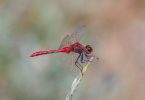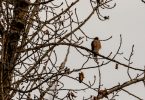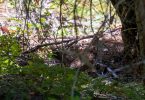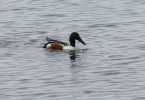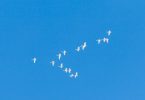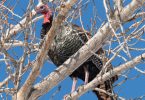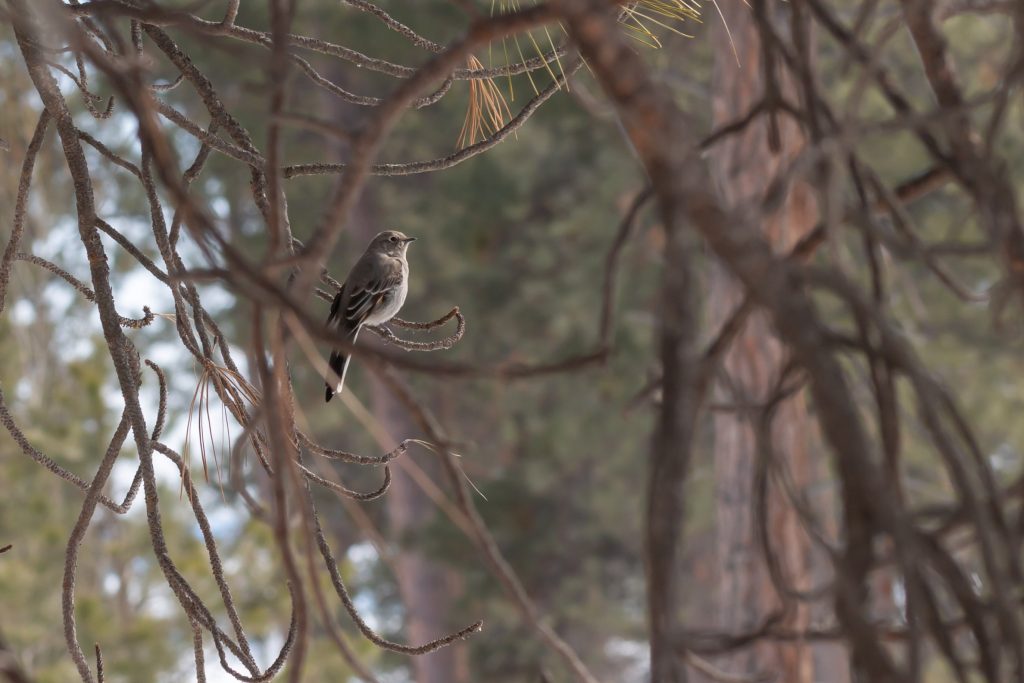
Common thrush of the winter season
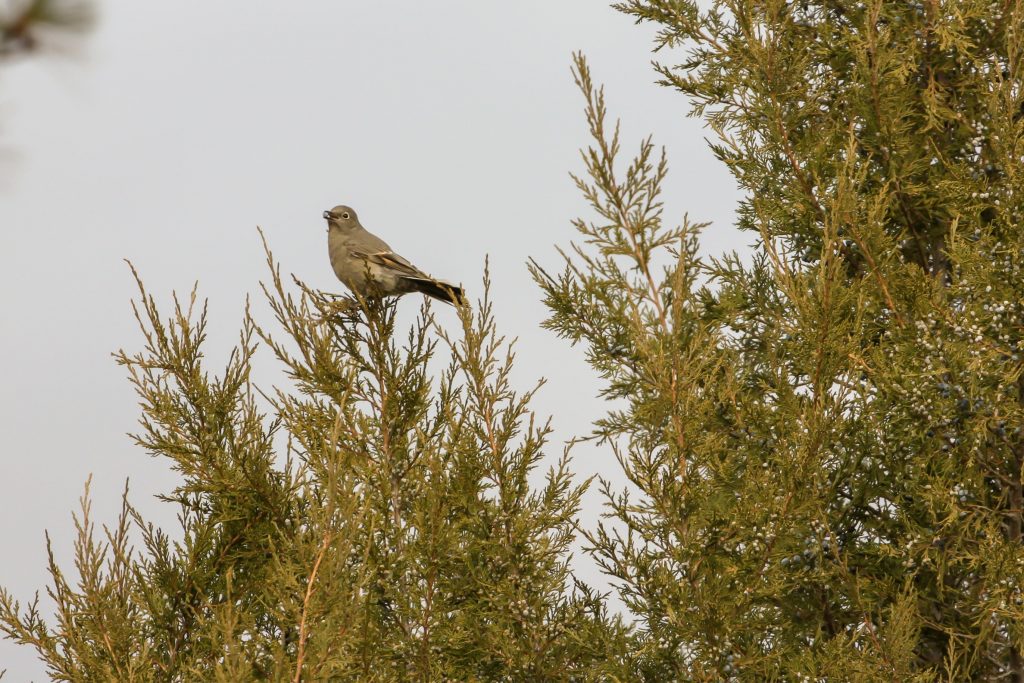
Townsend’s Solitaire (Myadestes townsendi) is an interesting bird, it migrates from higher elevations to lower elevations for winter here in western Montana. Our other breeding thrush species (robins, bluebirds and Catharus sp.) most all leave the area from late fall thru late winter. During this time I see or hear the solitaire on a somewhat regular basis.
It is because these birds have a berry diet during winter. A favorite food is the berry-like seed cone (photo above) of the Rocky Mountain Juniper (Juniperus scopulurum). Though it appears to be a berry it is a cone covered by a waxy covering that is: 3 % protein, 16 % fat, 46 % carbohydrate, 35 % fiber (Birds of North America, online account hosted by Cornell Lab of Ornithology). The bird consumes an estimated 42,000-84,000 berries/winter season.
Several juniper grow near our home (photo below) and a solitaire usually claims these as territory. Territory is advertised by what Sibley (2014) has described as a whistled “heeh”. It is loud and no mistaking it as few other bird species are even vocalizing late fall thru late winter.
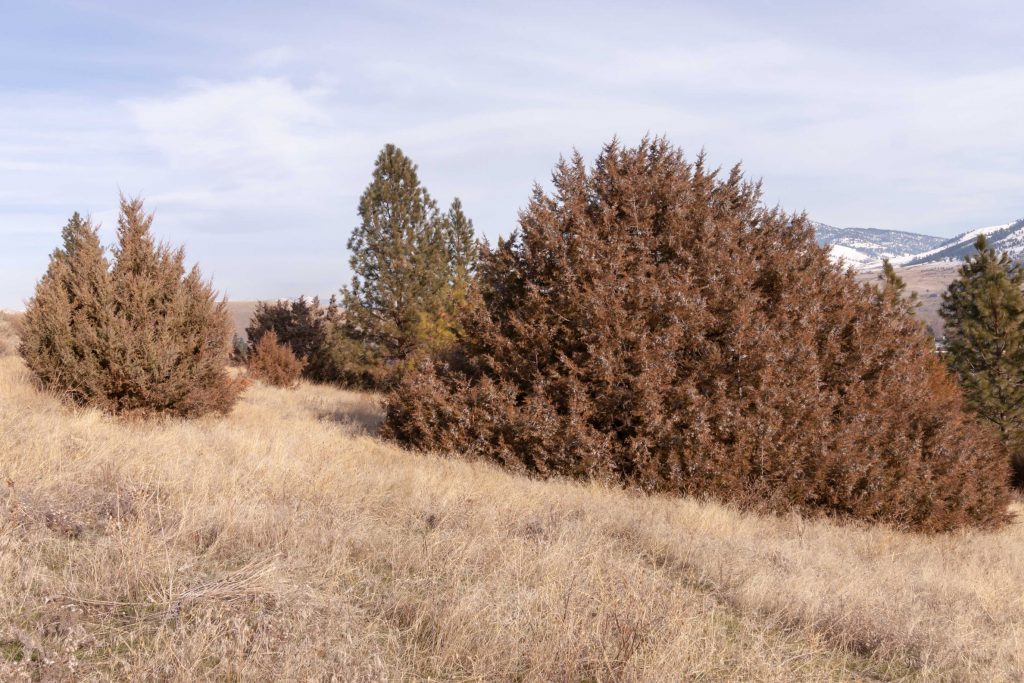
The sound guides your eyes to a bird usually atop a shrub or tree near food source. Distant looks may lack color, but the silhouette of this bird is pretty distinct. You will recognize thrush features of a small head, neckless and chunky.
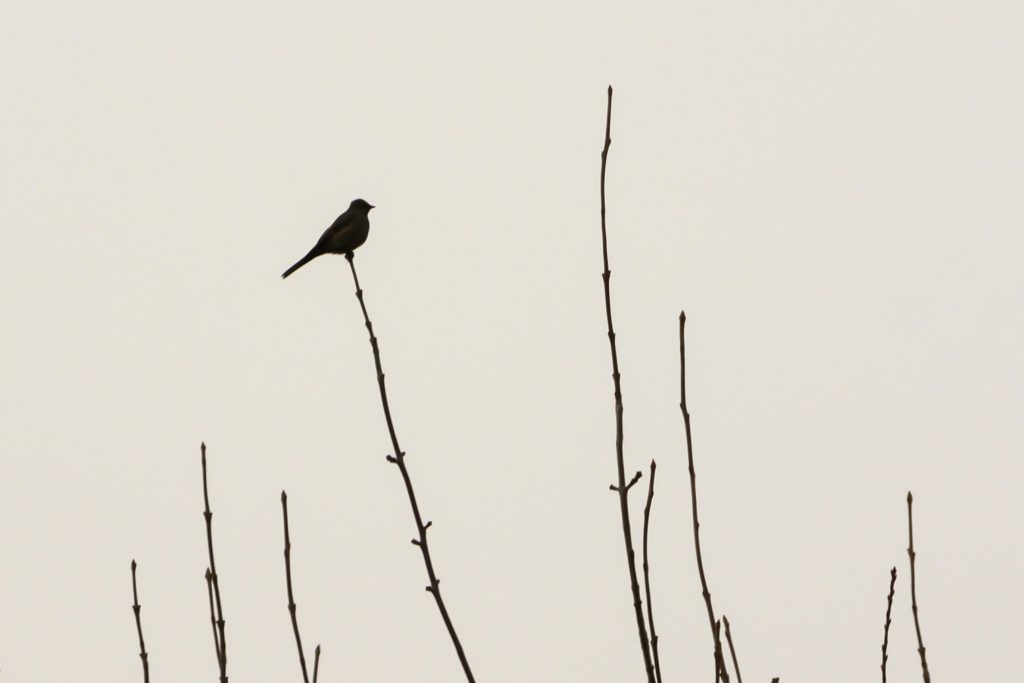
Maybe you will be lucky and have the bird land right above or near you (photos below). Note the: overall gray coloration (above and below), white eyering, white vane of outer tail feathers, a buffy colored wingbar and a longish tail for a thrush.
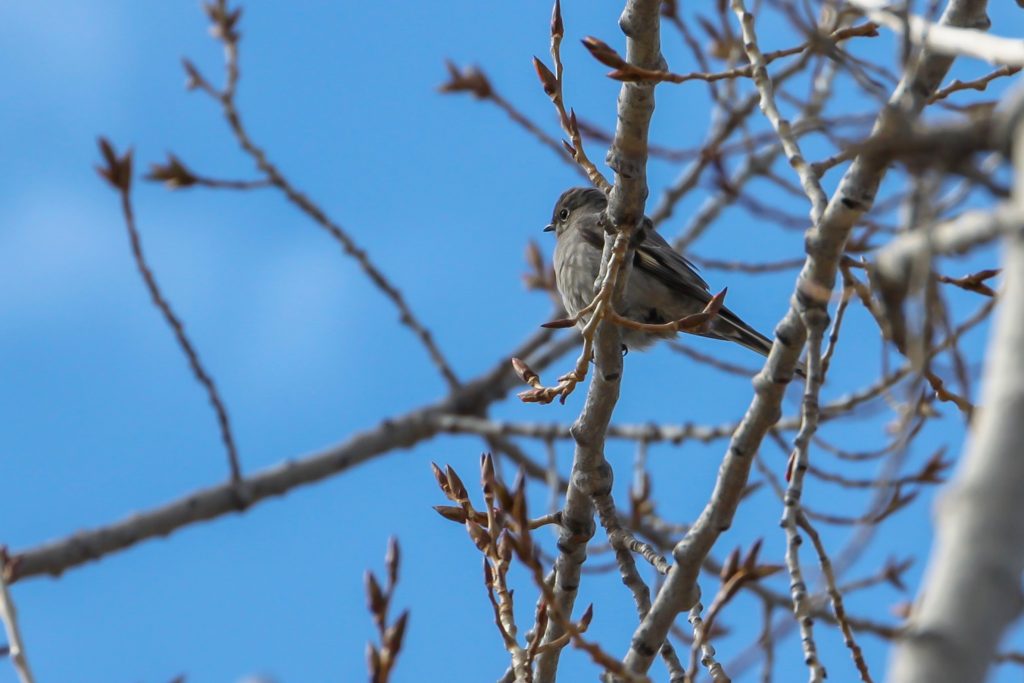
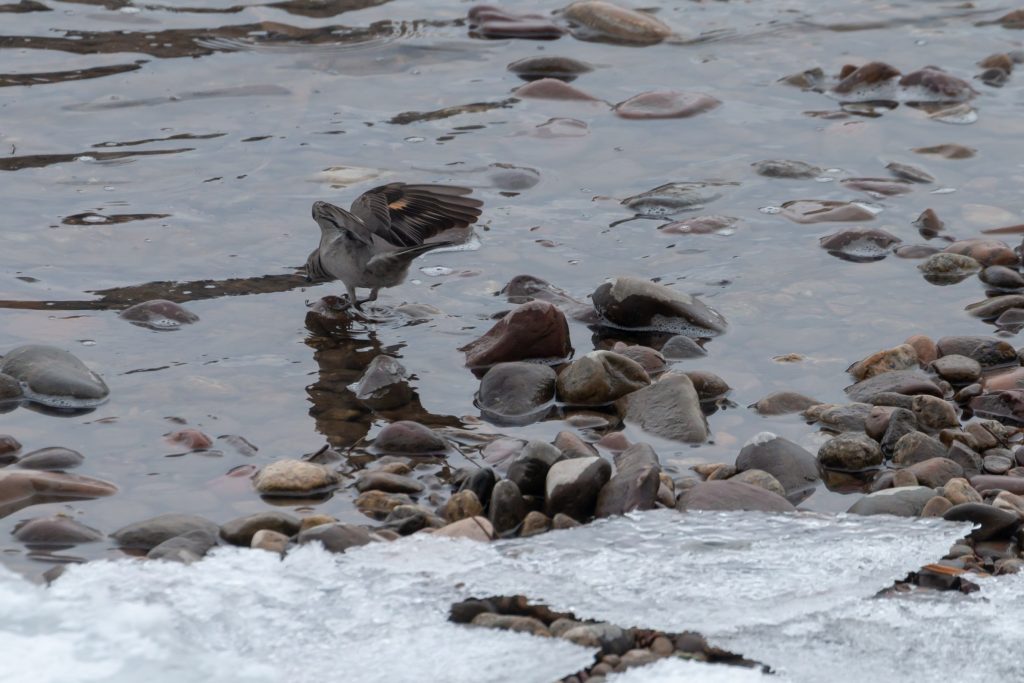
All About Birds is the free online reference from Cornell Lab of Ornithology with more life history details for your learning or entertainment.
Me, I watch birds.
Today I stroll in the park and I no longer see plain birds. I see gadwalls and buffleheads and, if I am really on a hot streak, a single old squaw. A road trip finds me watching the sky as much as the pavement. It gets harder to pass a sewage treatment pond, that notorious bird magnet, without pulling out my binoculars. When somebody cries, “Duck!” I look up.
The Big Year A Tale of Man, Nature, and Fowl Obsession by Mark Obmascik (2004), Free Press, New York.

